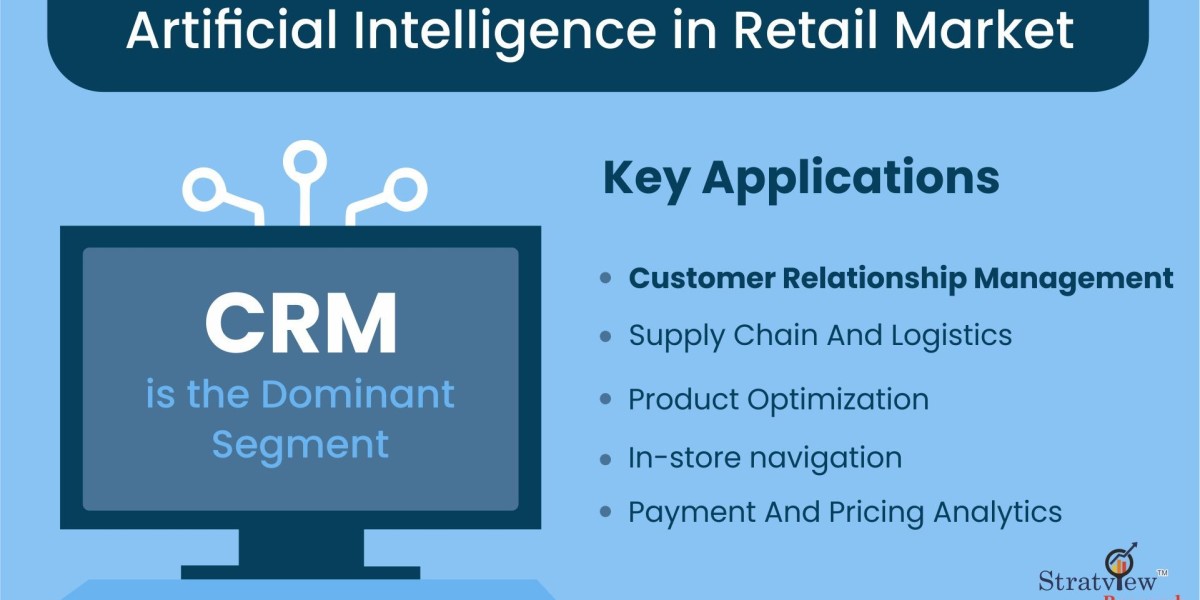Artificial Intelligence (AI) is reshaping the retail market by enhancing customer experiences, optimizing operations, and enabling more personalized interactions. As AI technologies continue to evolve, they are becoming an integral part of the retail ecosystem, offering dynamic solutions that meet both consumer demands and business objectives. This article explores the key dynamics driving AI adoption in retail and how these changes are impacting the industry.
According to Stratview Research, the artificial intelligence in retail market was estimated at USD 5.79 billion in 2022 and is likely to grow at a CAGR of 23.20% during 2023-2028 to reach USD 20.26 billion in 2028.
- Personalization and Customer Experience
One of the most significant ways AI is influencing retail is through the delivery of hyper-personalized customer experiences. AI tools, such as machine learning and data analytics, analyze vast amounts of customer data, including browsing behavior, purchase history, and preferences. This enables retailers to offer tailored product recommendations, personalized discounts, and content that resonates with individual customers. With AI, retailers can engage customers in ways that feel intuitive and relevant, fostering loyalty and increasing conversion rates.
- Efficient Inventory and Supply Chain Management
AI is also playing a crucial role in transforming inventory and supply chain management. AI-driven predictive analytics enable retailers to forecast demand more accurately, helping them stock the right products at the right time. By analyzing patterns, trends, and external factors like weather and holidays, AI can provide insights that reduce both overstocking and stockouts. As a result, retailers improve operational efficiency, reduce waste, and streamline logistics, ultimately lowering costs and enhancing profitability.
- AI-Powered Customer Service
AI-powered tools like chatbots and virtual assistants are becoming increasingly prevalent in customer service. These technologies use natural language processing (NLP) to understand customer inquiries and provide relevant answers in real time. As AI continues to evolve, these systems are becoming more capable of handling complex issues, enabling businesses to provide seamless support across various touchpoints. This improves customer satisfaction by offering instant responses and ensuring round-the-clock availability.
- Advanced Fraud Detection and Security
In retail, the need for secure transactions and customer data protection is critical. AI is enhancing fraud detection systems by analyzing customer behavior and transaction patterns to identify unusual activities. By recognizing potentially fraudulent behavior, AI helps businesses reduce chargebacks, enhance security, and ensure a safe shopping environment for consumers. These capabilities are becoming even more important as e-commerce continues to grow and customer data becomes an increasingly valuable asset.
- Growth and Adoption Trends
The dynamics of AI in the retail market are further influenced by increasing investments in technology, growing consumer expectations, and the need for retailers to stay competitive. AI adoption is accelerating across industries, with retailers adopting these technologies not just for operational efficiency but also to differentiate themselves from competitors. This trend is expected to continue with a compound annual growth rate (CAGR) of 23.20% in AI-driven retail technologies from 2023 to 2028.
Conclusion
AI is driving fundamental changes in the retail market, influencing everything from customer engagement and product recommendations to inventory management and fraud detection. As these technologies continue to evolve, their impact on the retail industry will become even more profound. Retailers who embrace AI’s capabilities will be better equipped to meet consumer demands, streamline operations, and deliver innovative experiences, ensuring they remain competitive in an increasingly tech-driven market.


